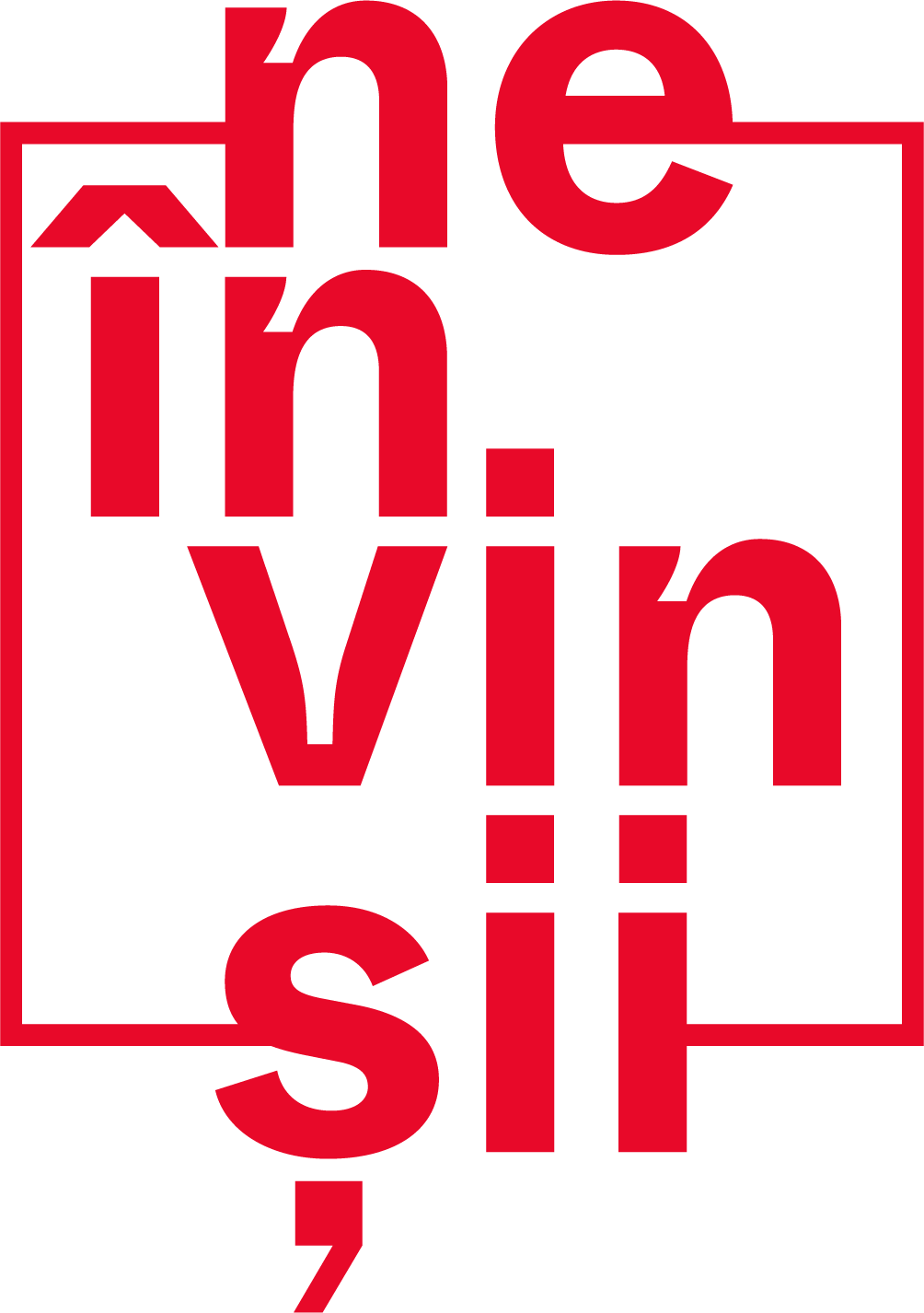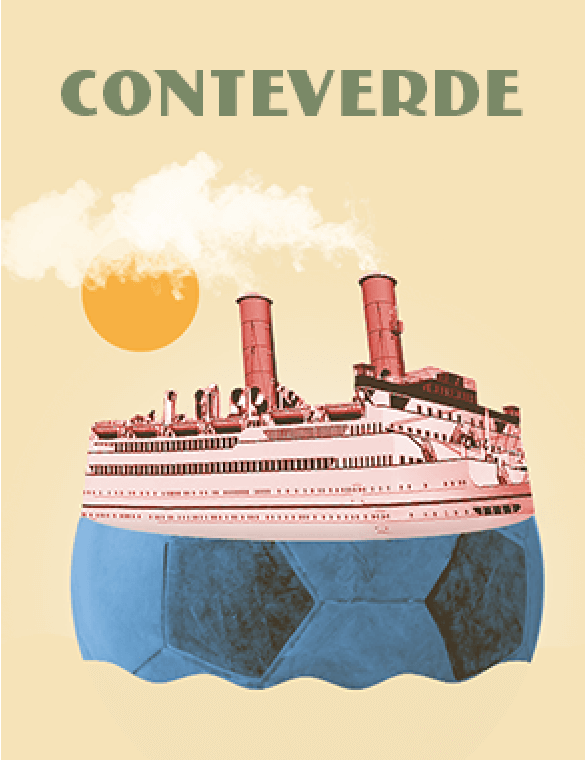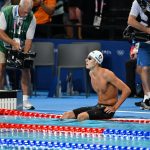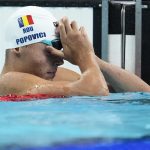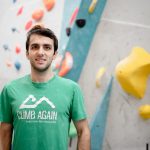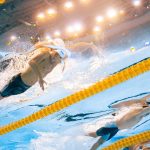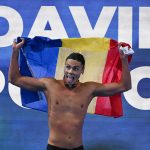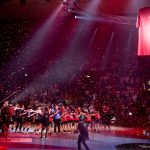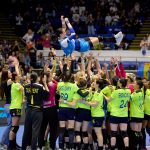Poveștile lui 2018: Cele mai bune lecturi ale anului în jurnalismul de sport
Andreea Giuclea 26 decembrie 2018„I think storytelling is really important in sports: where we come from, what we do, the places we play in.” (Roger Federer, 2018)
În fiecare sfârșit de an, colega noastră Andreea Giuclea face, pe blog, selecția celor mai interesante texte, podcast-uri sau documentare de sport apărute peste an în presa mondială.
Iată colecția 2018:
Naomi Osaka’s Breakthrough Game, Brook Larmer, The New York Times
Un portret al jucătoarei de tenis cu background multicultural Naomi Osaka, care a câștigat în septembrie primul titlu de Grand Slam reprezentând o țară, Japonia, a cărei obsesie pentru puritate rasială i-a influențat povestea familiei.
„What makes Osaka so complicated for Japan is precisely what makes her so appealing to many fans and corporate brands around the world.”
Most Dominant Athlete of 2018: Simone Biles, Danyel Smith, The Undefeated
S-au scris și am citit multe articole despre Simone Biles, despre care se spune că e cea mai talentată gimnastă din istorie, dar parcă niciunul nu mi s-a părut așa bine scris ca acest portret care vorbește despre revenirea ei după doi ani de pauză post-Jocurile Olimpice de la Rio unde a câștigat cinci medalii. Bineînțeles că acum e mai bună.
„The only thing greater than the legendary, genius, paradigm-shifting athletic status of Simone Biles is the degree to which so many don’t know or can’t understand what it is that she actually does.”
Believed, Michigan Radio & NPR
Un podcast NPR în nouă episoade care reconstituie, prin vocea supraviețuitoarelor, părinților și investigatorilor, povestea sportivelor abuzate de medicul lotului olimpic feminin de gimnastică al Statelor Unite, Larry Nassar, și modul în care și-au găsit vocea și curajul să se facă auzite, după ani în care nu au fost crezute.
Juan Martin del Potro Strikes Back, Chloe Cooper Jones, GQ
Poveștile sportivilor care se luptă cu propriul corp sunt printre preferatele mele, iar a argentinianului Juan Martín del Potro și a anilor în care a lipsit din tenis din cauza accidentărilor e minunat scrisă în acest portret-meditație despre durere.
„In Argentina, del Potro is often referred to as the Tower of Tandil. He has fallen, been put back together, reconstructed, and now stands stronger than ever. He’s not an underdog anymore. He’s not fragile. A kid in the stands holds up a sign that says “Delpo the Gentle Giant,” and I think, Sure, kid. This is the kind giant who grinds opponents’ bones for his bread.”
Children of The Cube, John Branch, The New York Times
Cea mai personală poveste pe care John Branch a scris-o pentru The New York Times e despre renașterea Cubului Rubik și despre cum și-a găsit fiul său cu ADHD locul în comunitatea pasionaților de acest nou sport numit speedcubbing.
„His biggest issue remains socialization. Joe’s a smart and tenderhearted kid, but like the cubes he carries everywhere, he can be hard to decipher and solve. Most don’t give him the time.”
Serena Williams on Motherhood, Marriage, and Making Her Comeback, Rob Haskell, Vogue
Aș citi la nesfârșit despre Serena Williams și despre cum își vede rolul ca sportivă de culoare, ca femeie, ca mamă. Revenirea ei în două finale de Grand Slam după o naștere cu complicații și un embolism pulmonar care a ținut-o în pat șase săptămâni e una din poveștile mele preferate din 2018.
„Why would I want to stand side by side when I can stand out on my own? I think sometimes women limit themselves. I’m not sure why we think that way, but I know that we’re sometimes taught to not dream as big as men. (…) I’m so glad I had a daughter. I want to teach her that there are no limits.”
Icarus, documentar câștigător de Oscar
Un regizor pasionat de ciclism începe să se dopeze ca să demonstreze cât de ușor e pentru sportivi să înșele sistemul. Când cere ajutor de la un om de știință rus descoperă o poveste uimitoare: șeful laboratorului antidoping din Moscova e de fapt cel care orchestrează un program sistematic de dopaj controlat de stat de zeci de ani pentru a trișa la Olimpiadă.
Viktor Orbán’s reckless football obsession, David Goldblatt and Daniel Nolan, The Guardian
Despre obsesia pentru fotbal a prim-ministrului Viktor Orbán, care construiește stadioane extravagante din bani publici, pentru că „he wants to make Hungarian football great again“.
Aly Raisman Takes The Floor, Mina Kimes, ESPN
Una dintre gimnastele abuzate sexual de doctorul Larry Nassar, campioana olimpică la gimnastică Aly Raisman a devenit una dintre fețele campaniei #metoo, găsindu-și curajul de a-și folosi vocea, într-un sport cunoscut pentru frică și tăcere. Vrea să reformeze sistemul în care s-a format și să schimbe modul în care femeile sunt văzute în societate.
„And yet, she knows there’s a part of her that’s incapable of normalcy. „Being an athlete, you’re always like – what can I do more? What can I do better?” she says. She can’t help it; it’s how her brain is wired. A life spent on the mats, flying and falling and flying again, created this paradox: Gymnastics hurt her deeply, but it also made her inconceivably strong. The sport gave her the tools to burn down the institution.”
Mai multe despre scandalul Larry Nassar și cultura abuzivă care a facilitat abuzurile.
Skiing Blind, Beth Rose, BBC
O poveste multimedia despre cum e să schiezi când ești nevăzător.
„Knight had always been known for her fearlessness. She has skied since she was six – the same age that she was left with 5% vision.”
There’s now clarity to Adam Rippon’s big picture, on and off the ice, Sam Borden, ESPN
Revelația Jocurilor Olimpice de iarnă (cel puțin pentru mine) a fost patinatorul american Adam Rippon, primul sportiv gay asumat din echipa olimpică a SUA. Nu pentru medalia câștigată (bronz cu echipa), ci pentru cum și-a folosit vocea și platforma pe care i-o oferă sportul ca să fie modelul care lui i-a lipsit când era copil și simțea că nu-și găsește locul.
„It’s important to be out, though, because when it’s new and fresh, it’s easier for other people to do it. The next athletes who come out won’t be „gay Olympians.” We’ll just call them „Olympians.” Which is what they are, and what I am.”
Seria „Egalitate” de la Treizecizero, despre femei importante din tenisul mondial.
„Când Billie Jean l-a zdrobit pe Riggs, am văzut pentru prima oară că tatăl meu putea fi învins. Și deodată am putut să respir. Am știut cu certitudine că există o cale de scăpare.”
Despre anxietate, depresie și stresul din viața sportivilor:
Mental Health in the NBA, Jackie MacMullan, ESPN
O serie de 5 episoade despre mental health în NBA: de la stigmă, tratament, cum e pentru sportivii de culoare sau pentru arbitri, ce măsuri iau cluburile și Liga să le ofere suport.
Everyone is Going Through Something, Kevin Love, The Players Tribune
Baschetbalistul american Kevin Love despre atacurile de panică de pe teren și de ce e important să vorbim despre sănătate mintală.
„Mental health isn’t just an athlete thing. What you do for a living doesn’t have to define who you are. This is an everyone thing. No matter what our circumstances, we’re all carrying around things that hurt — and they can hurt us if we keep them buried inside. Not talking about our inner lives robs us of really getting to know ourselves and robs us of the chance to reach out to others in need.”
Why Arsenal Star Per Mertesacker Is Happy to Leave Football, Antje Windmann, Der Spiegel
Fundașul lui Arsenal, Per Mertesacker, despre presiunea imensă din fotbalul profesionist, emoțiile dinainte de meci, insomniile, stresul asupra corpului și decizia de a renunța.
For a while, all his body could handle was noodles with a bit of olive oil. He couldn’t eat any later than four hours before a game to ensure that his stomach was guaranteed to be totally empty when the nausea started. „As if everything that then happened, symbolically speaking, just made me want to puke.”
Seeking Solace, and Finding Strength, in Shared Soccer Memories, Rory Smith, The New York Times
În fiecare miercuri, clubul englez West Bromwich invită la stadion un grup de fani în vârstă care se confruntă cu afecțiuni neurodegenerative. Discuțiile despre istoria echipei pe care o susțin de ani de zile îi ajută să-și regăsească o parte din amintiri și să scape de singurătate și izolare.
Campionatul Mondial
I’ve Got Some Things to Say, Romelu Lukaku, The Players’ Tribune
Povestea fotbalistului belgian Romelu Lukaku și a drumului pe care l-a parcurs din bucătăria în care și-a văzut mama subțiind laptele cu apă spre cariera de fotbalist prin care și-a promis că-și va ajuta familia.
People in football love to talk about mental strength. Well, I’m the strongest dude you’re ever going to meet. Because I remember sitting in the dark with my brother and my mom, saying our prayers, and thinking, believing, knowing … it’s going to happen.
I kept my promise to myself for a while. But then some days I’d come home from school and find my mum crying. So I finally told her one day, “Mum, it’s gonna change. You’ll see. I’m going to play football for Anderlecht, and it’s going to happen soon. We’ll be good. You won’t have to worry anymore.”
I was six.
A Croatian Guy Walks Into a Bar, Ivan Rakitic, The Players’ Tribune
O scrisoare de dragoste de la fotbalistul croat Ivan Rakitic pentru soția lui, pentru Barcelona, pentru fotbal.
„I think people don’t really understand how much footballers are affected by the people in their lives. When we’re interviewed, people always ask about managers and tactics and training, but they almost never ask about what’s going on off the pitch. And to me, that’s just as important to your career.”
Les Bleus: Une Autre Histoire de France, Netflix
Un documentar care rememorează ultimii 20 de ani din istoria fotbalului francez și modul în care naționala Franței a oglindit problemele din societate.
How some inside FIFA battled Russian influence and lost, Mark Fainaru-Wada & T.J. Quinn, ESPN
O investigație de un an a ESPN despre corupția, puterea de manipulare și influența pe care o are Rusia asupra FIFA.
The rise of Russia’s neo-Nazi football hooligans, Simon Parkin, The Guardian
Huliganii ruși extremiști și cultura propice radicalizării pe care o propagă, cu sprijinul statului.
„In a country emerging from the Soviet gloom in search of a new, assertive identity, hooliganism seemed to offer young men a shot of steadying nationalism, as well as a hypermasculine community that provided status and belonging.”
France pins its hopes on Kylian Mbappé, the boy from the banlieue, Angelique Chrisafis, The Guardian
Noul copil minune al fotbalului francez, transformat în erou pentru copiii din ghetoul în care a crescut și emblemă a diversității dintr-o societate cu multe probleme identitare.
„French politics has traditionally placed extraordinary pressure on the national football team to be a standard bearer for the country’s identity and a magic fix for society’s ills.”
*
Despre Messi și apropierea de final:
Should Lionel Messi’s failure to win a World Cup affect his GOAT claim?, ESPN
The Story of Messi, Mbappe, and a Changing of the Guard, The Independent
„Not even the greatest can write their own happy endings. Not even the most naturally gifted footballer in history is immune to failure.”
Despre Cristiano Ronaldo și ce vedem când ne uităm la el:
Confessions of a failed Ronaldo fan, Chad Holmes, ESPN
Ronaldo cries a lot, actually. Mostly after big matches. Always when he does there’s that sense of someone going a little to pieces after reaching the far side of unbearable expectations. When he loses, it’s the total finality of failure. When he wins, it’s the lifting away of pressure. Given his reputation, you expect him at moments like that to project the image of a man who’s saying “look at how great I am.” Instead it’s more like “I did what I was supposed to do, I can look myself in the eye, I didn’t screw up.”
Andrés Iniesta’s Farewell, and How to Make Endings Count at Work, Tim Leberecht & Gianpiero Petriglieri, HBR
Despărțirea lui Iniesta de Barcelona, ritualul prin care și-a luat la revedere și lecțiile care pot fi aplicate în organizațiile în care muncim.
We reduce love to “love what you do, and do what you love,” but we don’t make much space for those hours or days in which love breaks our hearts.
Finalul de an a fost al Adei
Not Here to Dance, Ada Hegerberg, The Players’ Tribune
Fotbalista care a câștigat primul Balon de Aur acordat fotbalului feminin, după care a fost întrebată dacă știe să facă twerking, a povestit cum a trăit cea mai frumoasă seară din viață.
„The one thing I would say to any girl who is reading this right now is this: You can’t lose your fire. You can’t let anybody take your fire away from you. If you have big dreams, the fire is the only thing that will get you there. Talent alone will not do it. Patience will not do it. You’re going to be tested and pushed to the limits of what you can take. You’re going to have to work just as hard as the men to get to the top of your sport, but for a lot less money. You’re going to cry. You’re going to throw up. You’re going to ache.”
Foto: Unsplash

